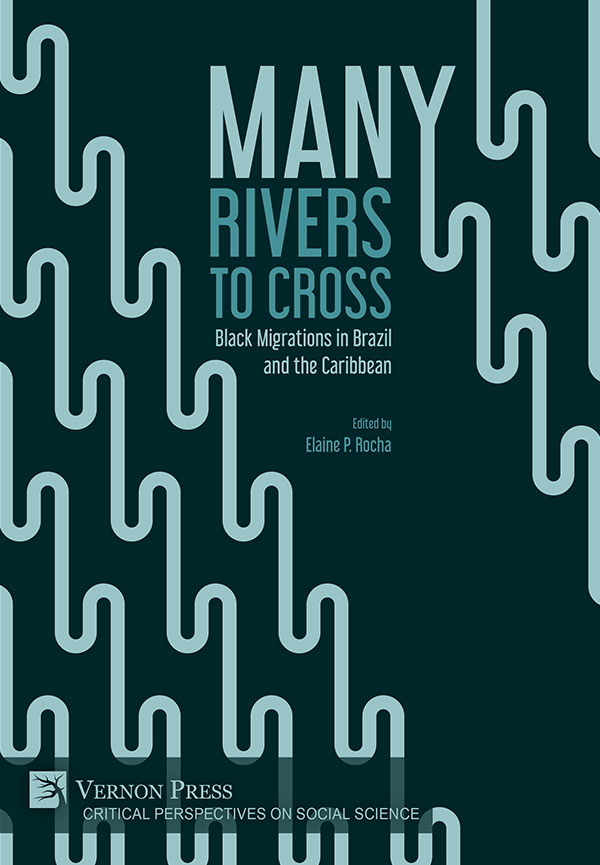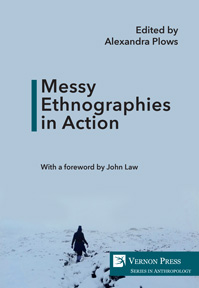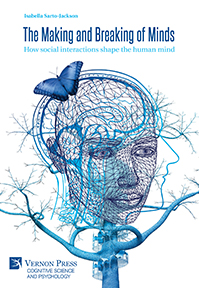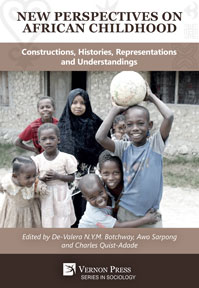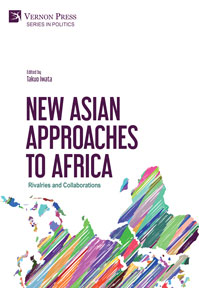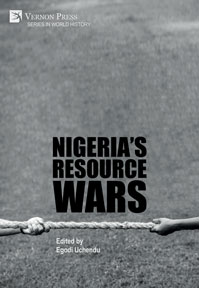Many Rivers to Cross: Black Migrations in Brazil and the Caribbean
Elaine P. Rocha (Ed.)
by Carlos Eduardo Coutinho da Costa (Universidade Federal Rural do Rio de Janeiro, Brazil)
Purchase this book
(click here to change currency)
“Many Rivers to Cross” offers what might best be described as a Brazilian perspective of the Black migration in the Americas, a welcome and innovative addition to the literature. Brazil, as Elaine Rocha points out, has the largest “mixed-race” population in the world, and the book’s contributors reflect this in their research. Migration, whether voluntary or coerced, has been the history of people of African descent in the Americas, but this experience has often been taken for granted by scholars. From the slave trade era to the present, people of African descent have been on the move in the Western Hemisphere, and although the book focuses primarily on Brazil and the Caribbean, it is, like the migrants themselves, wide-ranging in its adaptability to the history of other regions. This is because the Black experiences presented in the book have echoed across time and space in the Americas with the result that “Many Rivers to Cross” will be of interest to anyone who wishes to see the African diaspora in a different light. Labour, free and unfree, is a major theme, but the book also touches on Pan-Africanism, immigration policies, geopolitics, culture, and other topics that will be familiar to students of migration. In a very broad sense, Black migrants in the Americas have been a nomadic people who carried their language, music, religion, and many other things from one end of the hemisphere to the other. With migration in the headlines on a daily basis, “Many Rivers to Cross” is a timely and enjoyable exploration of a subject that has shaped the Americas for the past five centuries.
Dr. Ronald Harpelle
Professor of Latin American and Caribbean History, International Development History, and Human Rights and Social Justice History
Lakehead University
Since the first contact with Europeans, the Americas have been a continent of immigrants as much as a continent of continuous migrations. Black migrations represent more than the transit of people between countries and regions and from rural areas to urban centers. It contributed to constructing networks that made survival possible, creating neighborhoods and cultural expression, impacting dietary habits, exchanging crops and agricultural techniques, and uplifting families from slavery and misery to ownership, education, and political representation. The most dangerous elements that moved from place to place with blacks were the ideas of freedom and citizenship.
This book brings together articles from authors dedicated to the study of black migrations in diverse countries as well as in diverse historical periods to highlight that the movement of black people has been continuous over the centuries. Sometimes voluntarily, others coerced, people have moved from one place to another, carrying with them history and important cultural traditions such as language, music, and religion. Moreover, dangerous ideas of liberty and equality would spread through the African Diaspora.
Ten authors from renowned universities contributed with their works on black migrations from a transnational perspective, exploring how people have transited between regions, countries, and continents, carrying their ideas, costumes, beliefs, and strategies for survival. In their trajectories, migrants built communities, created religions, musical traditions, languages, and much more. They influenced politics, contributed to revolutions and wars, to the economy, and shaped societies. For centuries, Latin America's official history has pushed black immigrants' histories to the margins, keeping them in the shadows and denying their importance in the construction of the modern world. The works brought together in this book aim to contribute to breaking this pattern, bringing the experiences of black migrants from the margins to the center.
Foreword
Darién J. Davis
Middlebury College
List of Figure and Tables
Introduction: Paths on the Margins of History
Elaine P. Rocha
The University of the West Indies, Cave Hill Campus, Barbados
PART I
SLAVERY AND FORCED MIGRATIONS
CHAPTER ONE
The Atlantic Slave Trade and the Portuguese-Brazilian Slavocrat Social Formation
João-Manuel Neves
Centro de Estudos Comparatistas, Universidade de Lisboa, Portugal
CHAPTER TWO
Fugitive Slaves in an Unstable Border Region: Patterns of Nineteenth-Century Slave Flight from Brazil to Uruguay and Argentina
Karl Monsma
Universidade Federal do Rio Grande do Sul, Brazil
Patrícia Bosenbecker
Universidade Federal da Grande Dourados, Brazil
CHAPTER THREE
Slavery and Cassava in the Atlantic World: Commercial and Cultural Relationship between Rio de Janeiro and Angola in the Nineteenth Century
Nielson Rosa Bezerra
Universidade do Estado do Rio de Janeiro, Brazil
PART II
BLACK AGENCY IN THE POST ABOLITION
CHAPTER FOUR
The Great Migration in Brazil: Blacks Families and Households. Rio de Janeiro, (1888-1940)
Carlos Eduardo Coutinho da Costa
Universidade Federal Rural do Rio de Janeiro, Brazil
CHAPTER FIVE
Life after Slavery: Migration, Work and Culture in Brazil 1900-1929
Lúcia Helena Oliveira Silva
Universidade Estadual Paulista, Brasil
CHAPTER SIX
Historical Aspects of Forced and Free Black Migrations in the ABC Islands
Marco A. Schaumloeffel
University of British Columbia, Canada
PART III
UNWANTED PEOPLE WITH DANGEROUS IDEAS
CHAPTER SEVEN
The Antillean Immigration in Cuba: Labor and the Politics of Race
Kátia Couto
Universidade Federal do Amazonas, Brazil
CHAPTER EIGHT
No Ugly People in The Paradise: Undesirable Immigrants in the Brazilian Racial Democracy
Elaine P. Rocha
The University of the West Indies, Cave Hill Campus, Barbados
CHAPTER NINE
Diasporic Echoes in the Global South: The Italo-Ethiopian War and Brazil
Petrônio Domingues
Universidade Federal de Sergipe, Brazil
Contributors
Index
Elaine P. Rocha has a Ph.D. in Social History from the University of São Paulo (Brazil), a Master in Cultural History from the University of Pretoria (South Africa), another Master in Social History from the Catholic University of São Paulo (Brazil) and a BA in History from the University of Taubaté (Brazil).
Elaine has been teaching history since 1985, at the secondary school level and from 1991 at the university level, teaching courses like Introduction to History, Brazilian History, Brazilian Culture, European Modern History, Gender History in Brazil, Research Methodology, Feminist Theory, New Theories in History Research, and Latin American History.
In 2003 Dr. Rocha left Brazil and lived in Pretoria, South Africa for two years. She moved to Addis Ababa, Ethiopia, in 2005, where she taught at the Institute of Gender Studies.
Since 2007, she has been a member of the Department of History and Philosophy at the University of the West Indies, campus Cave Hill, Barbados, where she teaches courses in Latin American and Brazilian History, Black Atlantic, and Research Methods.
Having chosen to study racial and gender relations in Brazil and Latin America, Elaine Rocha has published ten books, including 'O Início do Feminismo no Brasil. Subsídios para a História. Leolinda Daltro' (editor, 2022); 'Canal de Desvio. Um estudo da experiência de agricultores e índios no confronto com a Itaipu Binacional' (2021); 'Ideias fora do lugar. Representações e Experiências de Raça e Gênero' (editor, 2021); 'Mosaico: A Construção de Identidades na Diáspora Africana' (co-editor, 2020); and 'Milton Gonçalves: Memórias Históricas de um Ator Afro-Brasileiro' (2019). She also contributed with chapters and articles in academic journals and some newspapers and magazines.

